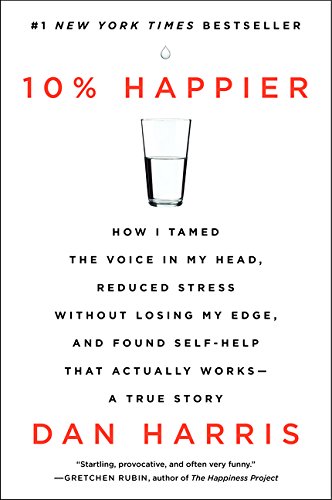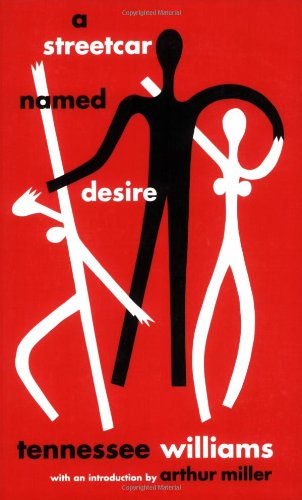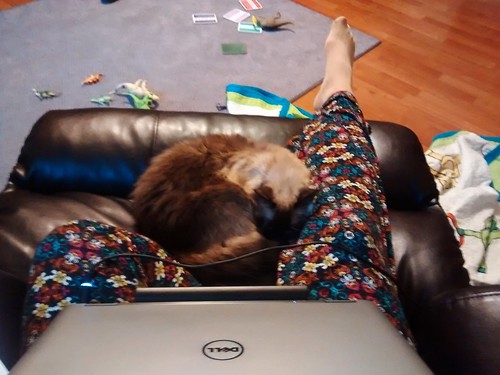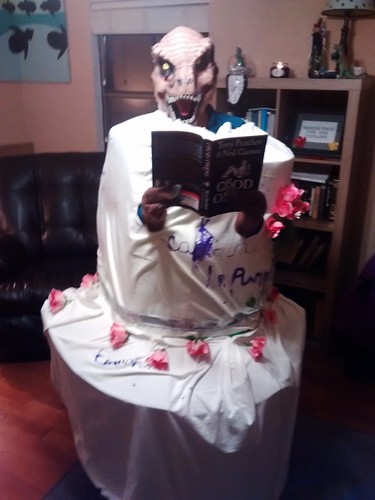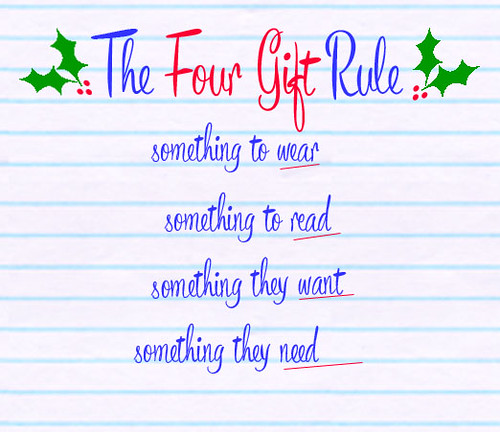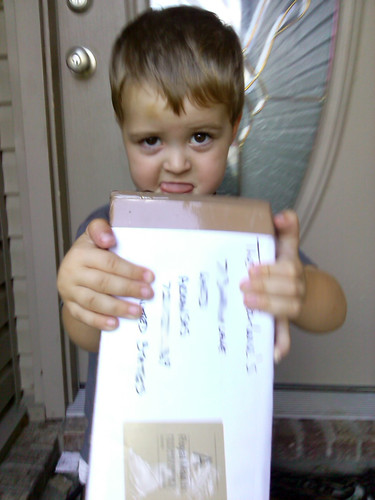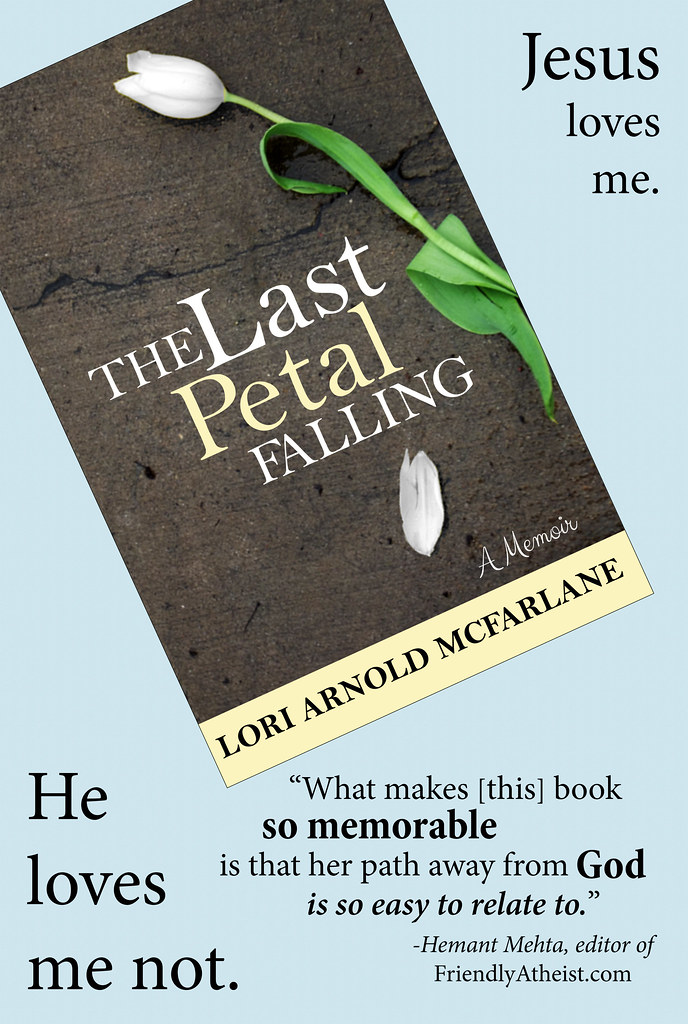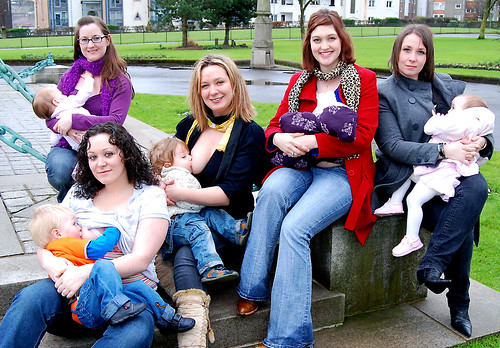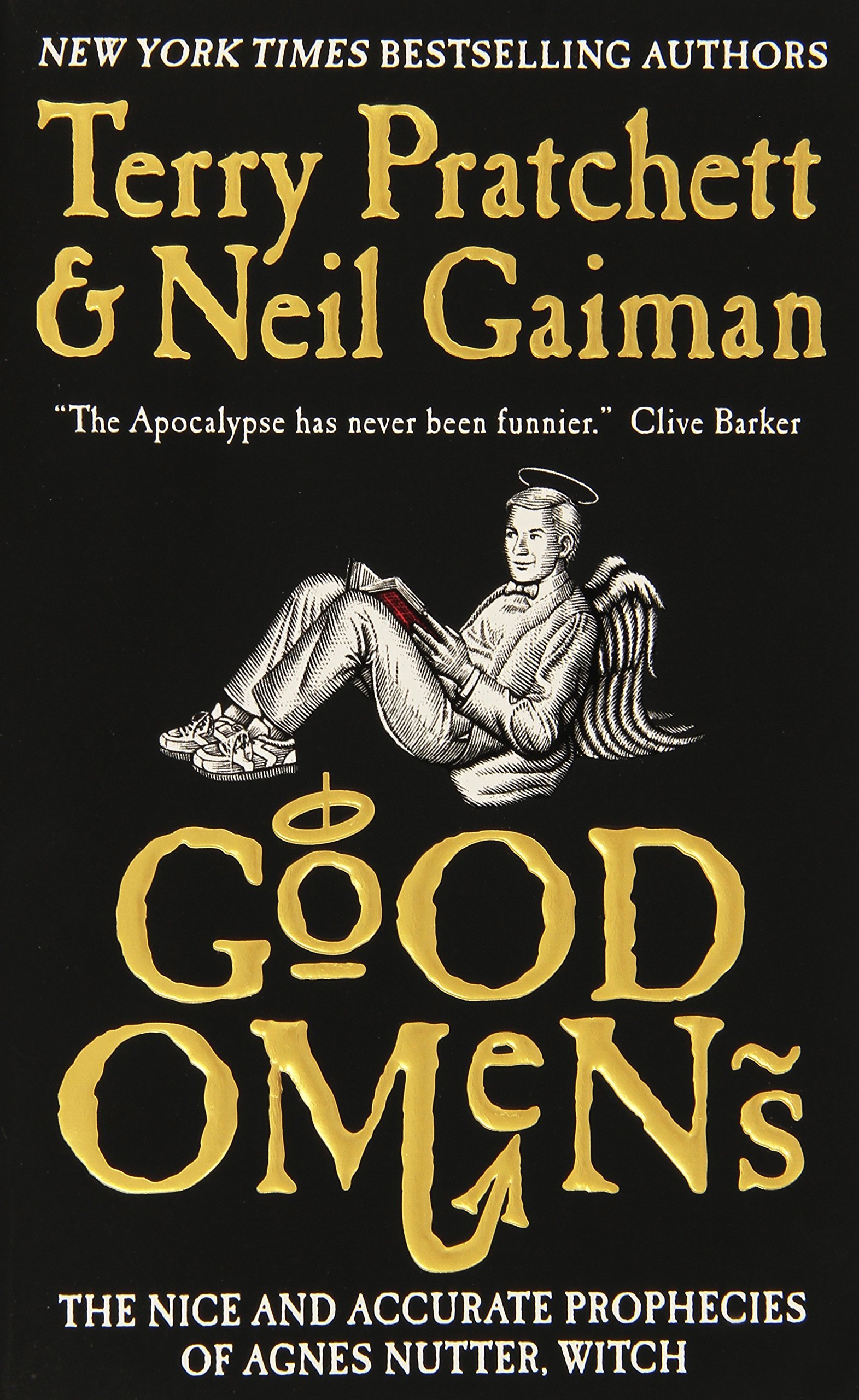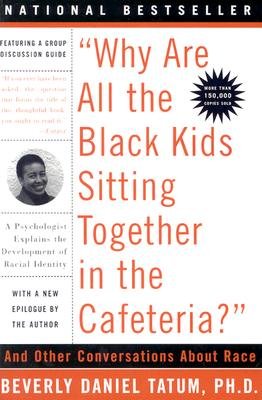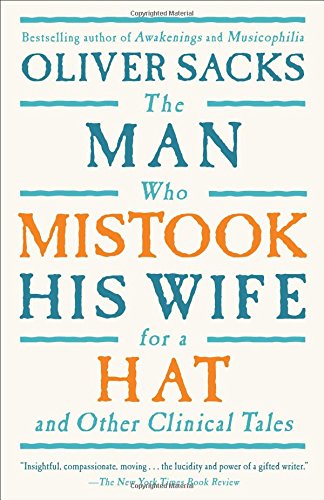 The Man Who Mistook His Wife For a Hat by Oliver Sacks (A book you started but never finished)
The Man Who Mistook His Wife For a Hat by Oliver Sacks (A book you started but never finished)In college, I had to satisfy a social science credit by taking either sociology or psychology. Thinking Psych 101 would be interesting (lol, psyche!!!), I registered for 8am MWF Intro to Psychology. My professor was a perception specialist and spent the first three weeks or so talking about nothing but perception. I don't know what he talked about after that because I dropped the class and took sociology instead.
One thing I took away from that experience, aside from never ordering textbooks on eBay in case they don't arrive in time for the first test and you'll have to drop the course to avoid failing, was an interest in this book. Professor Don't-Remember-His-Name recommended we all ready The Man Who Mistook His Wife For a Hat. I ordered the book for my father-in-law several years later, the recommendation to read still lingering in my mind, and read half of it. I don't recall finishing it.
So I ordered another copy last month and read it again, start to finish. It's a fascinating read, balancing out scientific and clinical commentary with unbelievable anecdotes, making it readable for even the least psychologically trained of us. If you're interested in truly bizarre psychological phenomena, you should get a lend of this book. It's much more exciting than Intro to Psyche.
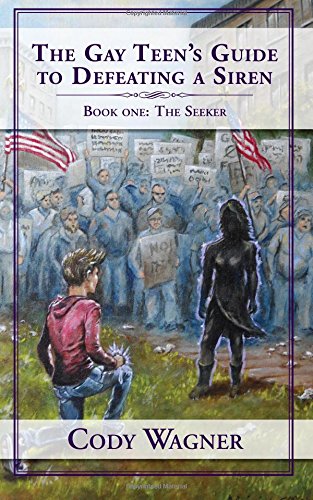 The Gay Teen's Guide to Defeating a Siren: Book 1: The Seeker by Cody Wagner (A book set in high school)
The Gay Teen's Guide to Defeating a Siren: Book 1: The Seeker by Cody Wagner (A book set in high school)Since the Self-Published Book Fair, I've gone on a big "buy self-published books!" kick. This book was written and self-published by a friend of a friend. I had no idea if it would be any good, but being a self-published author myself, I wanted to support the guy. Plus, I love the gays. I ordered the book on Amazon and read it in two days.
I loved it!
It's a humorous sci-fi-ish/fantasy-ish/not-realistic-ish book about a gay kid who accidentally comes out of the closet and gets sent to a "pray away the gay" camp. Little does he know the danger that awaits him there. The good thing is he has a superpower. He's gay.
Y'all, I freaking loved this book. I won't tell you anymore, lest I give too much away. I just have to say, go support a self-published author and order this book. It's not in any way offensive to religion (he manages to keep religion pretty well out of the book other than the fundamentalist preacher who insists his parents send him away to camp for healing), and it's not a "gay" book. It's just really fun. I can't wait for Book 2!
10% Happier: How I Tamed the Voice in My Head, Reduced Stress Without Losing My Edge, and Found Self-Help That Actually Works--A True Story by Dan Harris (A book with a number in the title)
My friend (I think I can call her a friend - she's a woman I know professionally, with whom my company does business, and with whom I've really hit it off, so I think I can call her a friend... It's not like I'm not an over-analyzer or anything...) recommended this book to me. We actually recommend lots of books and movies to one another. She had just finished this one a few weeks ago when we met for lunch (a half business, half pleasure lunch - I think I speak for us both when I say it was half pleasure) and thought I'd really like it.
It's about Buddhist meditation.
And she was right. I ordered the book that evening, and once I started it, I finished it quickly. Dan Harris (of ABC's Nightline and Good Morning America fame) was once a hot-headed, drug-addicted asshole (his words, not mine) of a news reporter. He was given the religion beat by Peter Jennings, which he reluctantly accepted, being a life long agnostic and wholly uninterested in religion. It was on this beat that he discovered meditation first through self-help books and later by Buddhist practitioners. The book tells the story of how he became interested in meditation in spite of himself (and in spite of the raised eyebrows and dismissive comments of his colleagues and family) and eventually came to be a committed (secular) Buddhist yogi.
I have to admit, I was pretty taken in by his arguments. I always believed meditation and "clearing your mind" would be an open door invitation for the demons to step inside and start rearranging the furniture. With the fear of little evil imps no longer haunting my nightmares (and boy did they haunt my nightmares), the concept of mindfulness really struck a chord with me.
When I mentioned to Scott that I was reading a book about Buddhism and meditation, I expected an eye roll, but to my surprise, Scott was very supportive of the idea. He even said he thinks it would be great for me.
I'm thinking about it.
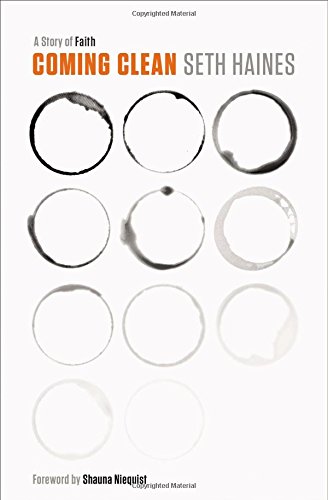 Coming Clean by Seth Haines (A book that scares you)
Coming Clean by Seth Haines (A book that scares you)I wrote an extensive "review" of sorts of this book earlier this month. Click here to read.
The short version: I liked it a lot, even though I don't believe in a god. It is beautifully written, the imagery is sharp and emotive, the story line is at times heartbreaking, and the general experience of suffering is universal.
A Streetcar Named Desire by Tennessee Williams (A Pulitzer Prize-winning book)
I saw the movie as a Marlon Brando-obsessed teen (swoon), but I'd never read the book - or play, actually - though I've always wanted to. The play won the Pulitzer in 1948, thus checking off a bucket list item and a book challenge category.
As an adult, I definitely saw the play as much more convoluted than I did as a teen. As a teen I:
A) Couldn't understand why Stella stuck with Stanley
B) Hated Stanley (even if he was played by the sexy Brando)
C) Thought Blanche was batshit crazy.
Reading it now, all the nuance revealed itself me. All the complexity of characters - the good/bad/ugly of each. While on the surface, A, B, and C still basically held true, I saw the subdivisions to all. I sympathized with all three main characters, seeing their flaws but also seeing how and why they acted the way they did. I'd love to see this performed on stage some day. I'd also love to watch the movie again. (Mostly for Brando's bare chest but also for the story.)
 To see what else I have read this year:
To see what else I have read this year:October
September
July/August
June
May
April
March
February
January
